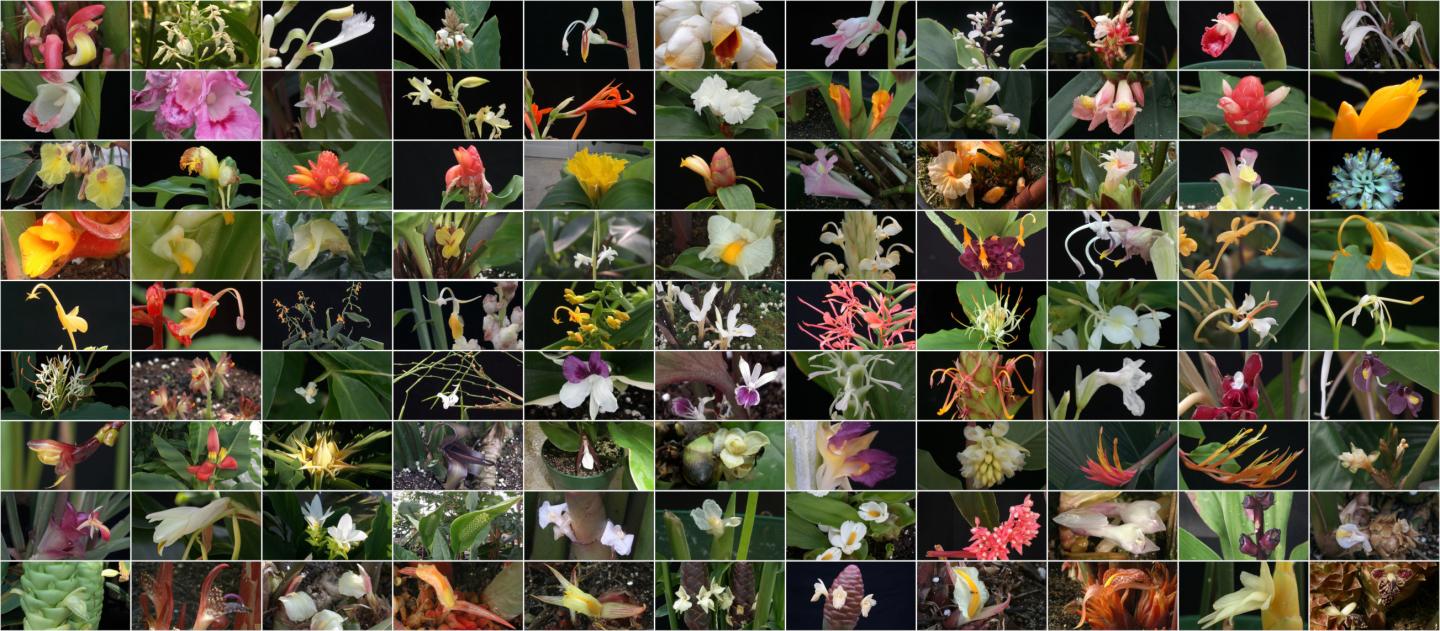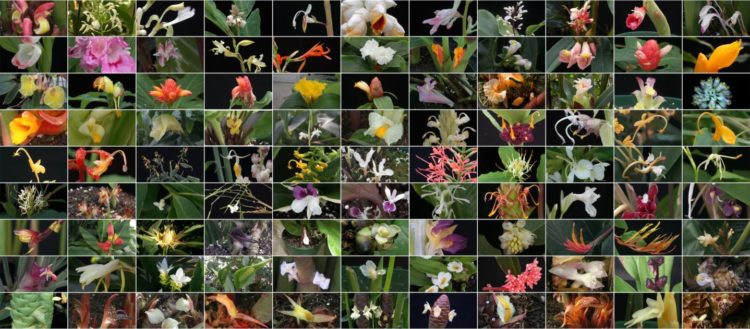Over 200 species of rare ginger relatives were recently acquired and established into cultivation by staff at the UConn Rainforest

Credit: Clinton Morse
Over 200 species of rare ginger relatives were recently acquired and established into cultivation by staff at the Ecology & Evolutionary Biology Biodiversity Education and Research Greenhouses aka The UConn Rainforest.
This exceptional collection was made available to UConn by Dr. W. John Kress, Distinguished Scientist and Curator Emeritus at the Smithsonian Institution, who has conducted “over forty years of tropical field research and plant collecting across the globe” and is one of the world’s foremost experts on this plant group.
Dr. Carlos Garcia-Robledo, former Smithsonian Postdoctoral Fellow in Kress’ lab and currently an assistant professor at the Department of Ecology & Evolutionary Biology – UConn initiated the contact between institutions to acquire this unique plant collection. Garcia-Robledo noted: “this is one of the most outstanding collection of living plants in the world. When John told me that he wanted to share his collection with UConn, I was ecstatic”
Mr. Clinton Morse, UConn’s Living Plant Collections Manager, orchestrated the acquisition of this collection over the summer months. “During my 25+ year tenure here at UConn I’ve had the good fortune to acquire a number of unique species from colleagues at the Smithsonian that helped to fill critical gaps in our collections. But the breadth of diversity and species rarity of this particular acquisition arguably make the UConn collection the most extensive living ginger collection outside of the tropics.”
The collection spans all 8 families of Zingiberales (a major order of charismatic plants that include bananas, gingers, cardamom, turmeric, birds of paradise and prayer plants) and includes over 2/3 of all currently recognized genera, many of which are rarely seen in cultivation.
A number of the species acquired are presently new to science and will be formally described, named and published in the near future by Kress and students at UConn.
The collection serves as a foundation for investigations by a number of UConn researchers as well as a repository of living material available to scientists at peer institutions. Garcia-Robledo notes “with the support of the National Science Foundation, National Geographic and Smithsonian, my research team uses Neotropical Zingiberales to understand the effects of global warming on biotic interactions. This collection represents a unique opportunity to answer new questions at a global scale.”
Plant species are becoming extinct at an unprecedented rate. Garcia-Robledo notes “In the last two and a half centuries, more plant species became extinct than bird, mammal and amphibian species combined”. The Zingiberales are also threatened by global environmental change, Kress notes “As their native habitats are irrevocably degraded and altered it is imperative to keep them alive and available for continued research.”
###
Media Contact
Elaina Hancock
[email protected]





